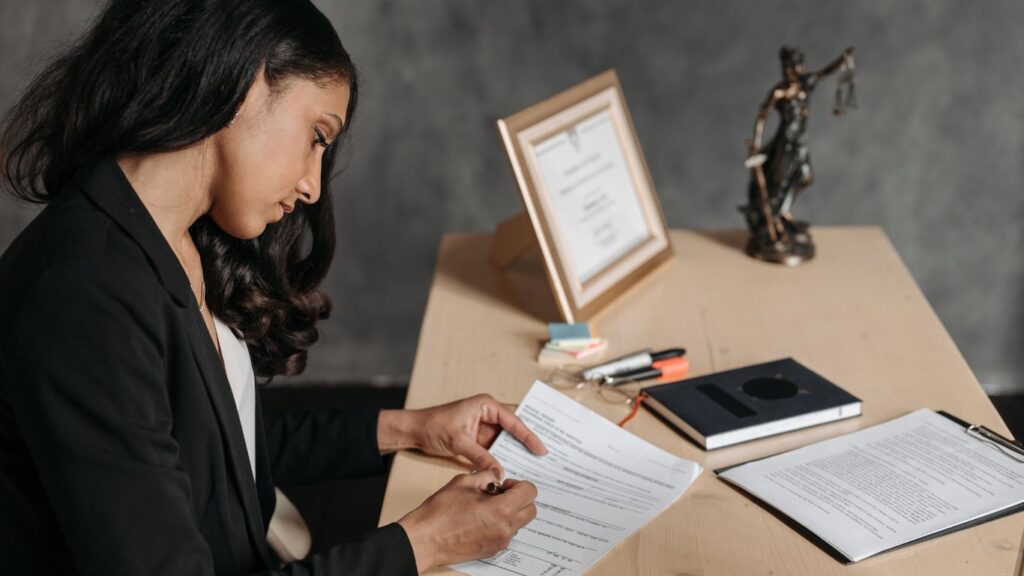In the complex legal landscape of the United Arab Emirates (UAE), the Power of Attorney emerges as a crucial legal instrument, empowering individuals to delegate authority and make decisions on their behalf. This article delves into the nuances of the Power of Attorney in the UAE, exploring its significance, types, and the process of implementation.
The Basics of Power of Attorney
Defining Power of Attorney
- At its core, a Power of Attorney is a legal document that grants authority from one person, known as the principal, to another person, referred to as the agent or attorney-in-fact. This delegation of authority can be broad or limited, depending on the terms specified in the document.
Importance of Power of Attorney
- The Power of Attorney is a versatile legal tool, serving various purposes. Whether it be managing financial affairs, making healthcare decisions, or handling business transactions, having a POA in place can streamline processes and ensure a smooth continuation of affairs, especially in the face of unforeseen circumstances.
Types of Power of Attorney in the UAE
General Power of Attorney
- A General Power of Attorney grants broad authority to the appointed agent, allowing them to handle a range of legal, financial, and business matters on behalf of the principal. This type of POA is especially useful when the principal needs ongoing representation, such as in business transactions or property management.
Limited or Specific Power of Attorney
- A Limited or Specific Power of Attorney restricts the agent’s authority to a specific task or set of tasks. This type is employed when the principal only needs assistance with particular affairs, such as selling a property or managing a specific business deal.
Durable Power of Attorney
- A Durable Power of Attorney still works even if the person who gave it (the principal) can’t make decisions. This is particularly important for long-term arrangements, ensuring that someone can manage the principal’s affairs in the event of illness or disability.
Non-Durable Power of Attorney
- In contrast, a Non-Durable Power of Attorney terminates if the principal becomes incapacitated. This is suitable for situations where the agent’s authority is necessary only when the principal is fully capable of making decisions.

Creating a Power of Attorney in the UAE
Legal Requirements
- In the UAE, the creation of a Power of Attorney involves adherence to specific legal requirements. The document must be in writing, signed by the principal, and notarized by a notary public. Additionally, the principal and the agent must be of legal age and possess the mental capacity to understand the implications of the POA.
Language and Cultural Considerations
- Given the diverse cultural landscape of the UAE, it is essential to consider language preferences and cultural sensitivities when drafting a Power of Attorney. It is advisable to have the document translated into Arabic, the official language, to ensure its validity and acceptance in local legal contexts.
Registering a POA
Notarization and Legalization
- After creating the Power of Attorney, it needs to be signed by a notary public. To make it valid internationally, it might have to go through a legalization process, also called attestation. This involves getting approval from the UAE Ministry of Foreign Affairs and the embassy or consulate of the country where it will be used.
Registration with the UAE Courts
- Certain types of Power of Attorney, especially those linked to real estate transactions, might require registration with the UAE courts to ensure validity and enforceability. Registration ensures that the document is officially recognized and can be legally implemented within the UAE.
Risks and Considerations
Potential Abuse of Authority
- While a Power of Attorney is a powerful legal tool, it comes with inherent risks. The appointed agent could potentially abuse their authority, leading to financial mismanagement or other undesirable outcomes. Therefore, careful consideration of the agent’s trustworthiness and integrity is paramount when creating a POA.
Revoking a POA
- To mitigate risks, the principal retains the right to revoke the Power of Attorney at any time, as long as they are of sound mind. This can be done through a formal revocation document, and all relevant parties and institutions should be notified promptly.
Conclusion
In conclusion, the Power of Attorney in the UAE is a pivotal legal instrument that empowers individuals to delegate decision-making authority. Understanding the types of POA, the legal requirements for creation, and the registration process is crucial for its effective implementation. While the special power of attorney brings numerous benefits, careful consideration and legal counsel are essential to mitigate potential risks and ensure a seamless delegation of authority.


